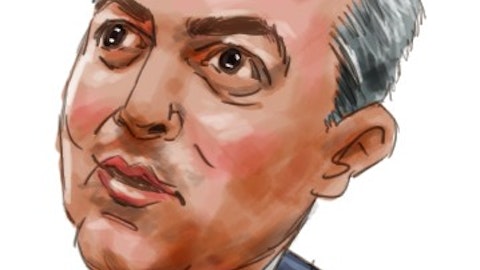15 Hedge Funds To Be Added To NY City Pensions (HedgeCo)
In an attempt to reduce volatility and heighten returns, New York City’s Employees’ Retirement System, Police Department and Fire Department are planning on adding up to 15 hedge fund managers over the next few years. …Allocations of $100-$350 million are expected. A $450 million allocation was made to Permal Asset Management (fund of funds) in 2011. In March 2012, direct investments of $350 million each were made to Brevan Howard Asset Management (global macro) and DE Shaw (multi-strategy). A $200 million allocation was made to Brigade Capital Management (credit). Caspian Capital Advisors (multi-strategy) and BlueCrest Capital’s BlueTrend fund (systematic) also received allocations this year.
Hedge funds – Preparing for new clients (FM)
With strong returns from equities and bonds, it’s not hard to see why net sales of hedge funds are flat. In the 12 months to October, with the JSE all share index up 18,6%, the overall return from hedge funds was 13%. Long/short funds – which have a strong correlation (or beta) to the equity market – achieved 17,8%. Stephen Brierley, head of hedge fund research at Symmetry, says there were some outliers. The Fairtree Wild Fig Multi Asset Class fund provided 39,9%, though with R350m under management few benefited. The other strong performer, Peregrine High Growth with 37,3%, enriched more people (with R668m under management) but unfortunately it was closed to new money.
Hedge fund seeks higher price for Caribou after Benckiser deal (Reuters)
A hedge fund with a 4 percent stake in Caribou Coffee Company, Inc. (NASDAQ:CBOU) on Wednesday urged the company to pursue a better deal after it agreed to be sold to Germany’s Benckiser group for $340 million, saying it is easily worth double that price. Accretive Capital Partners LLC of Madison, Connecticut, said in a letter to the company’s board that it was dismayed by the price of $16 per share that Caribou announced on Monday. Reuters obtained a copy of Accretive’s letter “We are baffled by the board’s and management’s decision to sell the company now and to do so without the benefit of engaging a qualified investment banker who would market the company and manage an efficient auction process,” Rick Fearon, Accretive’s managing partner, said in the letter.
Rich managers, poor clients (Economist)
THE masters of the universe have been humbled. Over the past ten years, hedge-fund managers have underperformed not just the stockmarket, but inflation as well. After fees, investors in the average hedge fund have received a return of just 17% (see article). Where should investors now look for zippier returns? The mediocrity of the hedgies’ recent performance is in part the result of the industry’s massive growth. Whereas in the past it was plausible that hotshots like George Soros could spot market anomalies, several thousand managers in an industry with $2 trillion of assets under management are very unlikely all to be able to earn spectacular returns. There will always be a few managers who do well, of course, but there is no reliable way of identifying them in advance, and past performance is a poor guide to future returns. John Paulson, the manager who made a fortune out of the subprime-mortgage crisis, has performed dismally since the start of 2011.
Best Practices for Hedge Funds to Navigate Their Own ‘Misaligned Incentives’ (ComplianceWeek)
In an interesting speech before the Regulatory Compliance Association yesterday, Bruce Karpati, Chief of the SEC Enforcement Division’s Asset Management Unit, explained that his specialized unit allows the SEC to focus on the specific vulnerabilities to fraud that hedge funds may face due to their operating model. Karpati said that developing an advanced understanding of the operating environment and incentives of asset managers helps the SEC proactively monitor and combat fraud in the industry. Karpati pointed to certain motivations and realities inherent in the hedge fund model that have led hedge fund managers to engage in fraud or misconduct, and how the SEC tries to use its knowledge in this area to guide its enforcement effort.
SEC Charges Advisory Firms and Portfolio Managers for Roles in Collapse of Midwest-Based Closed-End Mutual Fund (SEC)
The Securities and Exchange Commission today charged two investment advisory firms and two portfolio managers responsible for managing a Midwest-based closed-end mutual fund for their roles in the failure to adequately inform investors about the fund’s risky derivative strategies that contributed to its collapse during the financial crisis. An SEC investigation found that the Fiduciary/Claymore Dynamic Equity Fund (HCE) attempted two strategies to enhance returns — writing out-of-the money put options and shorting variance swaps. This exposed HCE to additional undisclosed risks and caused the fund to lose more than $45 million in September and October 2008, which was approximately 45 percent of its net assets. The fund liquidated in 2009.
Five things you didn’t know about Chris Hohn, Britain’s most generous philanthropist (NewStatesman)
Charity cards, carol services, collection tins and donate-a-goat-to-Africa gifts are all typical of this season’s charitable nature. Christmas and philanthropy are inseparable and it is therefore the occasion for charities to top up on much needed donations. However, with today’s economic climate, how are charities coping? NS Profile takes a look at one person who has given more than most over recent years. Here are five things you didn’t know about Chris Hohn: One of the UK’s most successful hedge fund managers, Hohn has donated over £800 million to children’s charities since 2003. His Children’s Investment Fund Foundation receives direct grants from his hedge fund of the same name.



